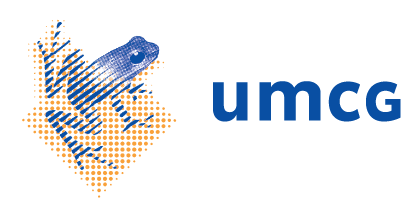Radiotherapy technologists (RTT)
At our department of radiation oncology, about one hundred radiotherapy technologists (RTTs) (co-)prepare and apply the radiation therapy treatments. Through continuing education, we ensure that our RTTs have up-to-date skills and knowledge of the most modern and complex radiotherapy techniques. Our RTTs furthermore contribute to scientific research. We offer internships to students who receive formal education towards becoming an RTT, providing exposure to the latest developments in radiotherapy.
Our department of radiation-oncology offers a wide variety of image-acquisition and radiotherapy technology. To ensure the highest possible quality of treatments, our RTTs have a wide-ranging knowledge of the entire field of radiotherapy, and they are specialized in one or more of the following areas of focus:
Treatment preparation
Mould room: making masks for head-and-neck irradiations, making molds for electron beam therapy, breath-hold training of patients receiving radiotherapy of the breast or chest wall regions, producing patient-specific tissue-equivalent bolus.
CT: Acquiring CT-scans, preparing acquired imaging for treatment planning (e.g. delineating normal tissues), treatment planning with a palliative intent, supporting image acquisition at PET-CT and MR, on-call duty for emergency treatments.
Treatment planning: Fusing PET and MR images to the planning CT-scan, selecting and optimizing the most suitable radiation therapy technique in accordance with the treatment prescription by the radiation-oncologist (photons: 3DCRT, IMRT, VMAT or protons: SFUD, IMPT), exporting treatment data to the treatment machine.
Treatment execution
Linac (treatment machine) and protons: Patient care is the primary focus. Entering and validating treatment plans at the linac or proton treatment machine, performing patient position verification before or during treatment, administering the radiation treatment.
Verification: Creating image matching contours for position verification, validating treatment planning data and table motion data prior to first treatment, supporting patient position verification and processing these data, requesting and processing repeat CTs.
Children’s workgroup: Each of our young patients is appointed one or two so-called buddy-RTTs who will be present during the application of radiation treatments. They are a buddy for the child or young adult and they are the contact person for the parents and the radiation-oncologist.
TBI: Preparing and applying total body irradiations (TBI).
Stereotactic treatments: Preparing and applying the stereotactic treatment of small intracranial or extracranial tumors. This involves the entire workflow from making the mask, through image-acquisition, to applying the treatment.
Orthovolt: Preparing and applying the radiation therapy treatment of superficial tumors.
Brachytherapy: Preparing and applying the radiation therapy treatment administered from within the body.
In-service training
Our department is at the forefront of new developments in radiotherapy, such as the recent introduction of proton therapy in the Netherlands. Therefore, continuing education is one of our top priorities. Our RTTs participate in (inter)national conferences and symposiums. We have a departmental accreditation program to support and encourage knowledge transfer, for example by means of ‘clinical lessons’. We encourage our RTTs to enroll in the quality register for paramedics.
Education
Our RTTs have completed the four-year college education in Medical Imaging and Radiation Therapy (MBRT), or an equivalent thereof. We offer new students a brief acquaintance with the world of radiotherapy by means of a job taster internship. For a more in-depth experience we offer the possibility of a twenty-week internship under the guidance of trained supervisors. These twenty-week internships provide exposure to a broad range of radiotherapy tasks, focusing on linac-related work. Internships are assigned by the study program. We also offer final-year students the opportunity to conduct a scientific research project at our department.
Contact person: Sandra Kik, to be reached at s.kik@rt.umcg.nl
Project support
Our department of radiation-oncology hosts an extensive research and development program, aimed at the continuous improvement of the quality of radiotherapy. Our RTTs contribute to this program. Next to challenging clinical tasks and the associated clinical innovation, we offer our RTTs to take part in scientific research. A selection of our RTTs spends one or two days each weak supporting the research projects of our PhD students and postdocs.

 English
English
 Nederlands
Nederlands